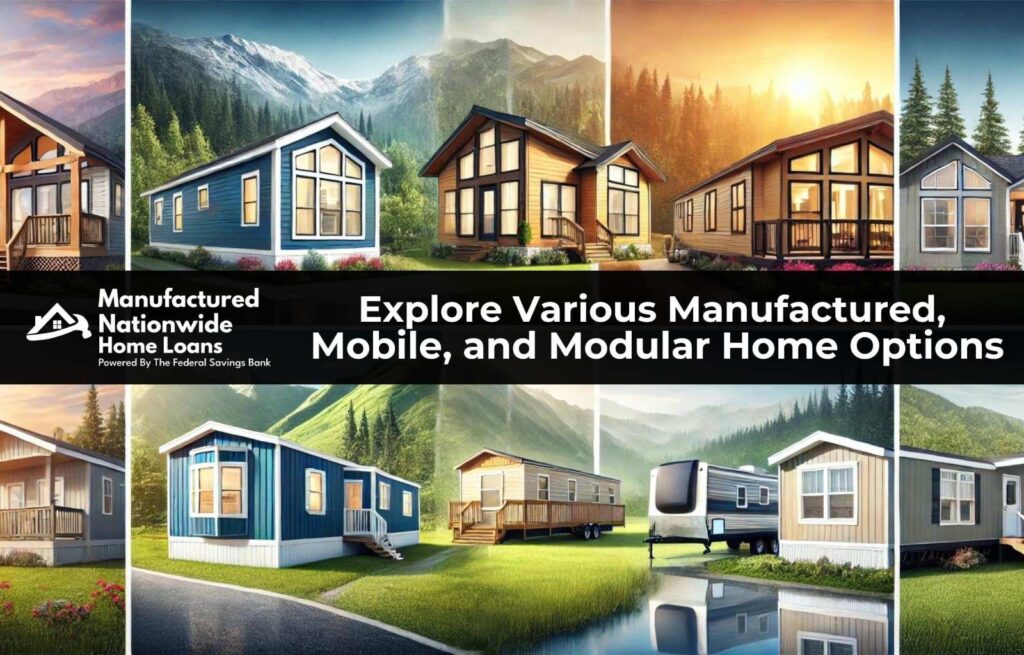Buying a modular home can be an affordable and customizable alternative to traditional housing, but understanding modular home financing is crucial to ensure you make the best financial decision. Financing a modular home differs from financing a site-built home in key ways, which may surprise many first-time buyers. Whether you are looking for modular home financing near me or are curious about financing in specific regions like BC, Alberta, or Florida, understanding your options is essential.
To make the process easier, this guide will break down the different types of modular home financing available, how rates are calculated, and how to find the best loan options tailored to your needs.
Understanding Modular Homes
Modular homes are constructed in sections or modules in a factory setting before being transported to a final location for assembly. Unlike manufactured homes, which are built to a different set of standards and often considered mobile homes, modular homes must comply with the same building codes as site-built homes. This can make them easier to finance and insure.
Benefits of Choosing Modular Homes
- Cost Efficiency: Modular homes are often more affordable than traditional site-built homes, as factory production reduces labor costs and construction time.
- Customization: Modular homes offer flexibility in design and layout.
- Energy Efficiency: Modern modular homes are built with energy-saving features.

Modular Home Financing Near Me
Finding modular home financing near me involves researching local lenders and banks that specialize in home loans for modular construction. Financing terms can vary widely depending on your location, as state-specific regulations and programs can influence interest rates and available loan products.
- Modular Home Financing in BC and Alberta: In Canada, provinces like BC and Alberta have specific guidelines and lending programs for modular homes. Canadian buyers often use a combination of personal savings, mortgage products, and government-backed loans to secure their financing.
- Modular Home Financing in Florida and Maine: U.S. states like Florida and Maine also have their unique loan programs, with some regions offering incentives for energy-efficient modular homes.
When seeking modular home financing near me, always compare rates and terms across multiple lenders to find the most favorable deal.
Modular Home Financing Options
When financing a modular home, there are several options available, depending on your financial situation and the type of property you plan to buy.
- FHA Loans: Government-backed loans designed to help low-income buyers secure home financing. These loans are popular for modular homes as they come with lower down payment requirements.
- VA Loans: For veterans and active-duty military members, VA loans offer an excellent option for financing a modular home with favorable terms.
- Conventional Loans: Traditional mortgages provided by private lenders, ideal for buyers with strong credit histories.
- Construction-to-Permanent Loans: These loans allow you to finance the construction of your modular home and convert the loan into a permanent mortgage once construction is complete.
How Does Modular Home Financing Work?
Modular home financing is similar to traditional home loans, but there are a few key differences. The process typically involves securing a construction loan to cover the costs of building your home, which then converts into a permanent mortgage after the home is assembled on site.
- Steps to Apply for Modular Home Loans:
- Pre-Approval: Determine your budget and get pre-approved by a lender for a modular home loan.
- Choose a Modular Home Builder: Select a builder that meets your needs and fits within your budget.
- Construction Loan: Apply for a construction loan to finance the building of your modular home.
- Mortgage Conversion: Once the home is completed, convert the construction loan into a permanent mortgage.
Modular Home Financing Rates
The rates for modular home loans depend on several factors, including the loan type, your credit score, and the current market conditions. It’s essential to compare different lenders’ rates to ensure you are getting the most competitive interest rate available.
- Factors Affecting Rates:
- Credit score
- Loan-to-value ratio (LTV)
- Down payment amount
- Loan type (FHA, VA, etc.)
In general, modular home financing rates tend to be slightly higher than traditional mortgage rates due to the unique nature of modular construction. However, buyers with excellent credit can often secure favorable terms.
Modular Home Financing Calculator
A modular home financing calculator can be a useful tool when budgeting for your new home. By entering variables like loan amount, interest rate, and term length, you can estimate your monthly payments and total loan cost.
- Key Inputs for Accurate Calculations:
- Loan amount
- Interest rate
- Loan term (years)
- Down payment amount
Using a modular home financing calculator allows you to see how different factors affect your monthly payments, helping you make informed decisions.
Modular Home Financing FAQs
What is the difference between modular and manufactured home financing? Modular homes often have easier financing options because they are built to the same building codes as traditional homes, while manufactured homes may face more stringent lending requirements.
How do I finance a modular home on leased land? Financing a modular home on leased land can be more challenging, as lenders may see it as a higher risk. It’s important to find lenders who specialize in leased land loans or consider alternative financing options.
Can I finance a modular home with bad credit? Yes, though it can be more difficult. Lenders may require a higher down payment or charge higher interest rates for buyers with bad credit.
How do I use a modular home financing calculator? Enter your loan amount, interest rate, and loan term to estimate your monthly payments. Adjust these inputs to see how different loan terms affect your budget.
What are the benefits of owning land when financing a modular home? Owning the land outright can make financing easier and more affordable, as lenders prefer homeowners who own the land the house will sit on.
Are modular home financing rates different in Canada and the U.S.? Yes, financing rates and loan options can differ between Canada and the U.S. due to regional banking regulations and loan products.







